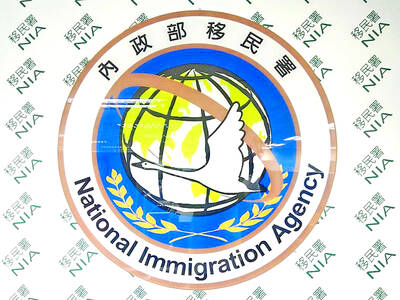Taiwan and the US are today to hold a Trade and Investment Framework Agreement (TIFA) working meeting, an official familiar with the matter said.
The virtual meeting is the first since the two sides on June 30 resumed the talks that were initiated in 1994 after a four-year hiatus.
The last working meeting before the hiatus was held during the administration of former US president Barack Obama, and the talks were halted during the administration of former US president Donald Trump, reportedly due to Washington’s displeasure with Taiwanese trade restrictions on some US goods, especially agricultural products.
With Taiwan and US relations improving, US President Joe Biden’s administration decided to restore the talks following a request from the US Senate.
Today’s meeting is to center on agriculture, with officials from the Office of Trade Negotiations and the Council of Agriculture to discuss with their US counterparts issues related to exports of Taiwanese fruit and orchids to the US, the official said.
During the June 30 TIFA talks, the two sides agreed to hold working meetings on issues of mutual concern at any appropriate time, to allow for frequent contact.
The next TIFA working meeting is expected to focus on medical equipment, based on an agreement that the document screening procedure should be streamlined by both sides to facilitate imports and exports of such products.
Taiwan has been eager to restart the TIFA talks. President Tsai Ing-wen (蔡英文) has reiterated that she hoped the talks would lead to a bilateral trade agreement.

Taiwan yesterday expelled four China Coast Guard vessels that entered Taiwan-controlled restricted waters off Lienchiang County (Matsu) shortly after the Chinese People’s Liberation Army announced the start of its “Joint Sword-2024B” drills around Taiwan. The Coast Guard Administration (CGA) said in a statement that it had detected two China Coast Guard ships west of Nangan Island (南竿) and another two north of Dongyin Island (東引) at 8am yesterday. After Chinese ships sailed into restricted waters off Matsu shortly afterward, the CGA’s Kinmen-Matsu-Penghu Branch deployed four patrol vessels to shadow and approach the vessels, it said. The incidents pushed up to 44 the number

Renovations on the B3 concourse of Taipei Main Station are to begin on Nov. 1, with travelers advised to use entrances near the Taiwan Railway or high-speed rail platforms or information counter to access the MRT’s Red Line. Construction is to be completed before the end of next year, Taipei Rapid Transit Corp said last week. To reduce the impact on travelers, the NT$95 million (US$2.95 million) project is to be completed in four stages, it said. In the first stage, the hall leading to the Blue Line near the art exhibition area is to be closed from Nov. 1 to the end

The government has issued a deportation order for a Spanish fugitive, ordering him to leave the country within 10 days, as he is wanted by European authorities for allegedly operating a car rental scam. National Immigration Agency (NIA) officials yesterday said Salvador Alejandro Llinas Onate, 48, had been notified that he must leave Taiwan, as he was wanted for committing serious crimes. The Spaniard has been indicted by Italian prosecutors for allegedly leading a 30 million euros (US$32.74 million) car rental scam and setting up a fraudulent company in Trento, Italy. The deportation order is based on Article 18 of

Taipei’s Ximending (西門町) shopping area welcomed the most international visitors, followed by Taipei 101, Songshan Cultural and Creative Park and Yangmingshan National Park (陽明山國家公園), a list of the city’s most popular tourist attractions published by the Taipei Department of Information and Tourism showed. As of August, 69.22 million people had visited Taipei’s main tourism spots, a 76 percent increase from 39.33 million in the same period last year, department data showed. Ximending had 20.21 million visitors, followed by Taipei 101 at 8.09 million, Songshan Cultural and Creative Park at 6.28 million, Yangmingshan at 4.51 million and the Red House Theater (西門紅樓) in